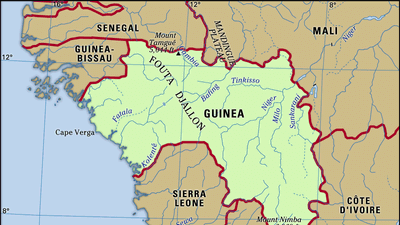Dozens of people were killed on Sunday, December 1, following violent clashes between football fans at a match in N’Zerekore, Guinea’s second-largest city, hospital sources reported to AFP.
The scenes at the local hospital were described as horrific, with bodies filling every available space.
“There are bodies lined up as far as the eye can see in the hospital. Others are lying on the floor in the hallways. The morgue is full,” said one doctor, who requested anonymity.
Another medical professional confirmed that there were “dozens of dead,” while other reports suggested that around 100 people had lost their lives.
The chaos began after a disputed decision by the referee during a tournament match, which led to fans storming the pitch. The violence quickly escalated outside the stadium, with videos shared on social media showing numerous bodies lying on the ground.
Though AFP could not immediately verify the footage, witnesses confirmed the devastating scenes. In the aftermath, angry demonstrators vandalised and set fire to the N’Zerekore police station, further intensifying the unrest.
Local media reports indicated that the match was part of a tournament held in honour of Guinea’s military leader, Colonel Mamadi Doumbouya. Doumbouya, who seized power in a coup in 2021, has since positioned himself as the country’s president.
The football tournament is among several such events organised as part of his efforts to maintain political relevance ahead of Guinea’s next presidential elections, expected in 2025.
Doumbouya’s coup removed former President Alpha Conde from office and has led to a prolonged period of military rule. While Doumbouya pledged to return power to civilian hands by the end of 2024, he has recently signalled that he may extend his grip on power, with growing support from his backers to run for president in the upcoming elections.
Guinea, despite its vast natural resources, remains one of the poorest nations in West Africa, grappling with political instability and authoritarian governance.
Doumbouya’s leadership has seen an ongoing crackdown on dissent, with opposition leaders either imprisoned, exiled, or forced into hiding.
The deadly incident in N’Zerekore serves as a grim reminder of the volatile situation in Guinea, where tensions between political factions and the military government continue to simmer.
The southeastern city, home to around 200,000 people, now faces the aftermath of this tragic outbreak of violence at a football match meant to celebrate national unity.



